Homemade Lavender Calendula Skin Balm
How to make homemade lavender calendula skin balm using only 5 natural ingredients.
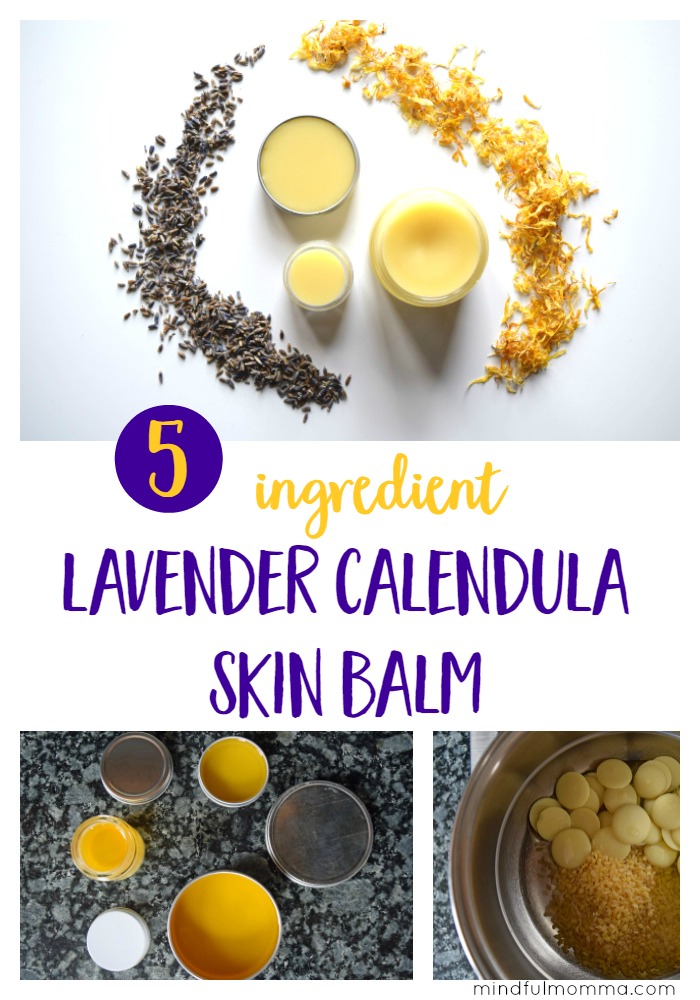
My skin has been so dry lately. Not sure if it’s the change of season or what, but it seems more dry than it usually is in the winter. I’ve been “itching” for a skin balm with sticking power – one that stays on my skin for a while instead of absorbing right in.
I found that a beeswax based skin balm was just what I needed to protect my skin in the winter.
At Mindful Momma we only endorse products we’ve personally researched, tested, and honestly love. We may receive commissions from affiliate links in this article including Amazon Affiliates. Full Disclosure
How to Make Lavender Calendula Skin Balm
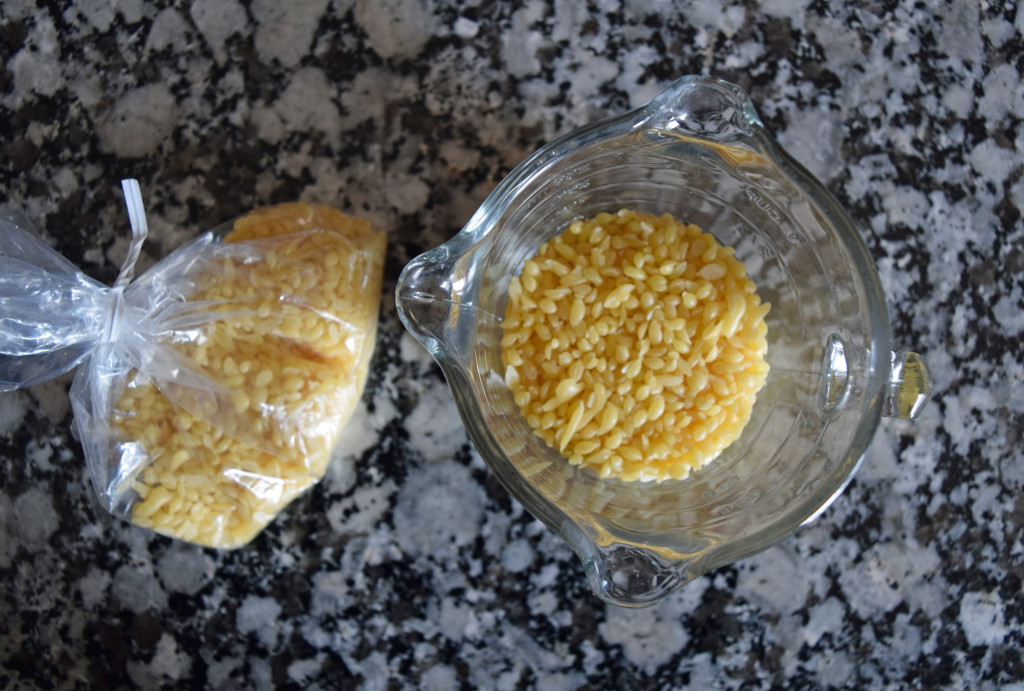
Beeswax forms a protective barrier on the skin, but unlike a petroleum product like mineral oil, it does not clog pores. Instead, it attracts water and helps to hold in moisture while allowing skin to breathe. Beeswax is also anti-inflammatory, antibacterial and naturally non-toxic. You can find beeswax pellets at many natural food stores (in the personal care section) or online.
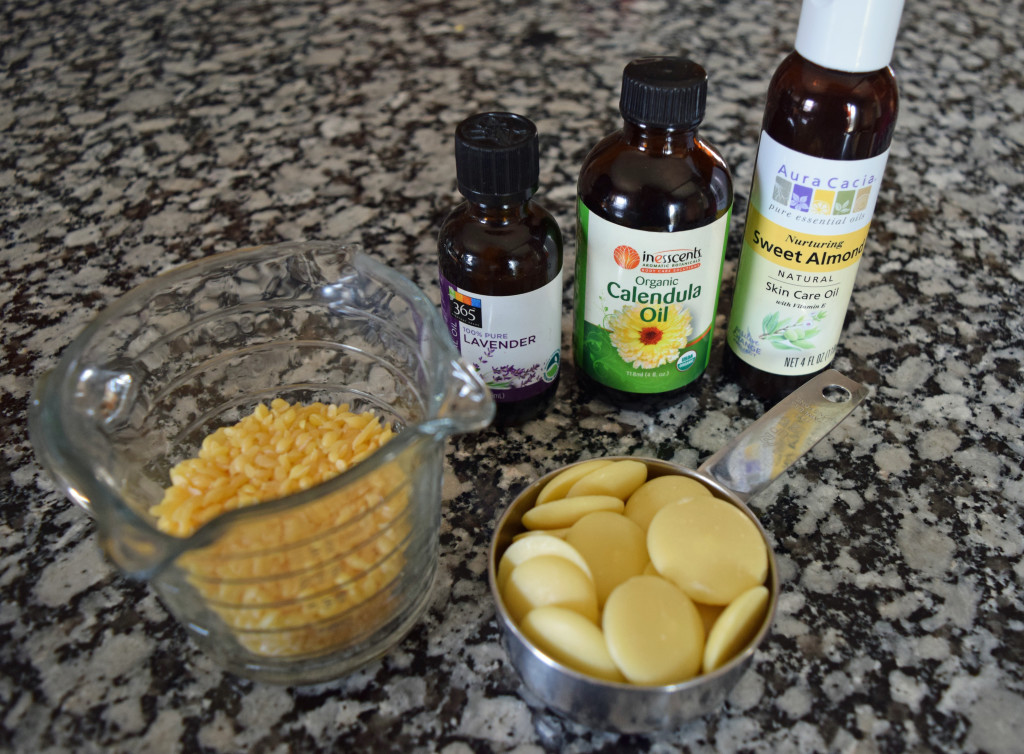
So I set to work making a beeswax-based product with a few other natural ingredients to make an ultra skin-nourishing balm. These are the ingredients I chose:
- Calendula oil because it’s fantastic for itchy, dry skin (I’ve written more about calendula for skin here)
- Cocoa butter, for its skin softening and antioxidant properties (I buy it in easy to melt discs)
- Sweet almond oil because it is a nourishing, vitamin-rich oil that also helps the balm spread on smoothly
- Lavender essential oil for a relaxing fragrance and soothing aromatherapy properties
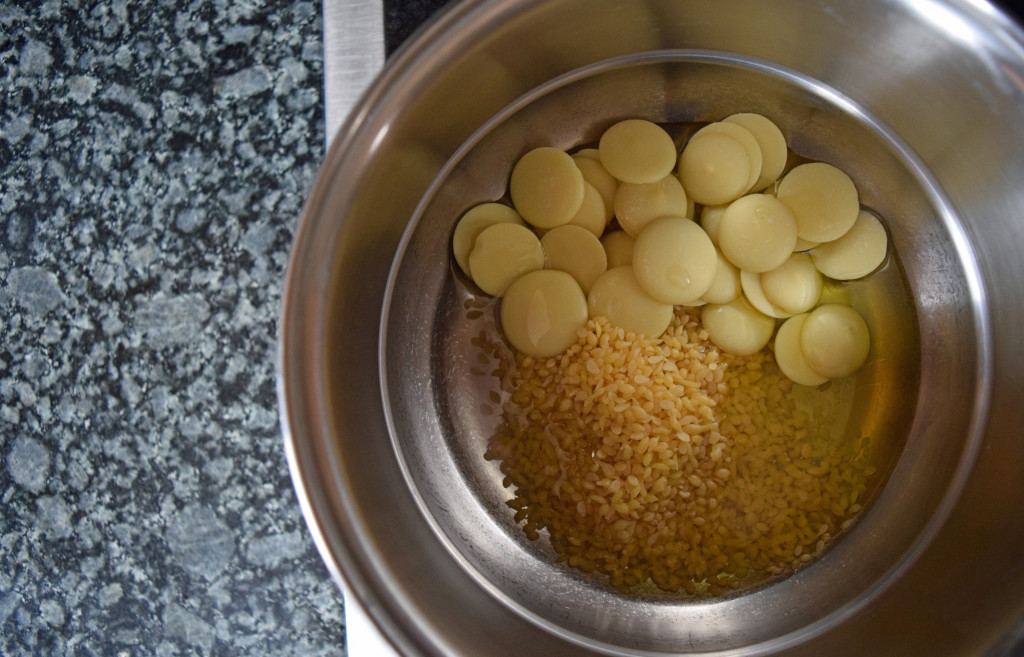
The process is crazy easy. Just add everything except the essential oil to the top bowl of a double boiler. Allow the beeswax pellets and cocoa butter discs to melt (this just takes a couple of minutes). Turn off the burner and then add the essential oil.
Here’s a quick VIDEO on how to make it:

Once everything is blended together you need to work relatively quickly to get the mixture into jars – before it begins to solidify! You can probably find small containers at your local co-op or natural foods store but you can find small tins and glass jars online as well. Don’t forget to save and reuse jars from other products too!
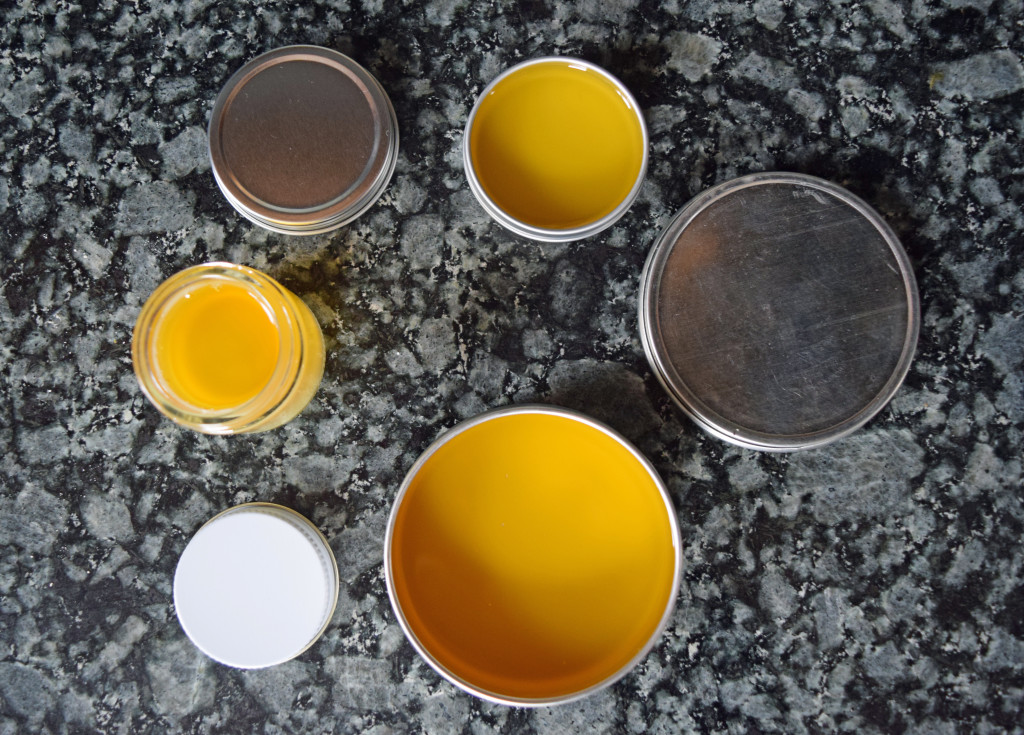
Allow the balm to cool before putting on the lid. It will turn lighter in color as it cools.
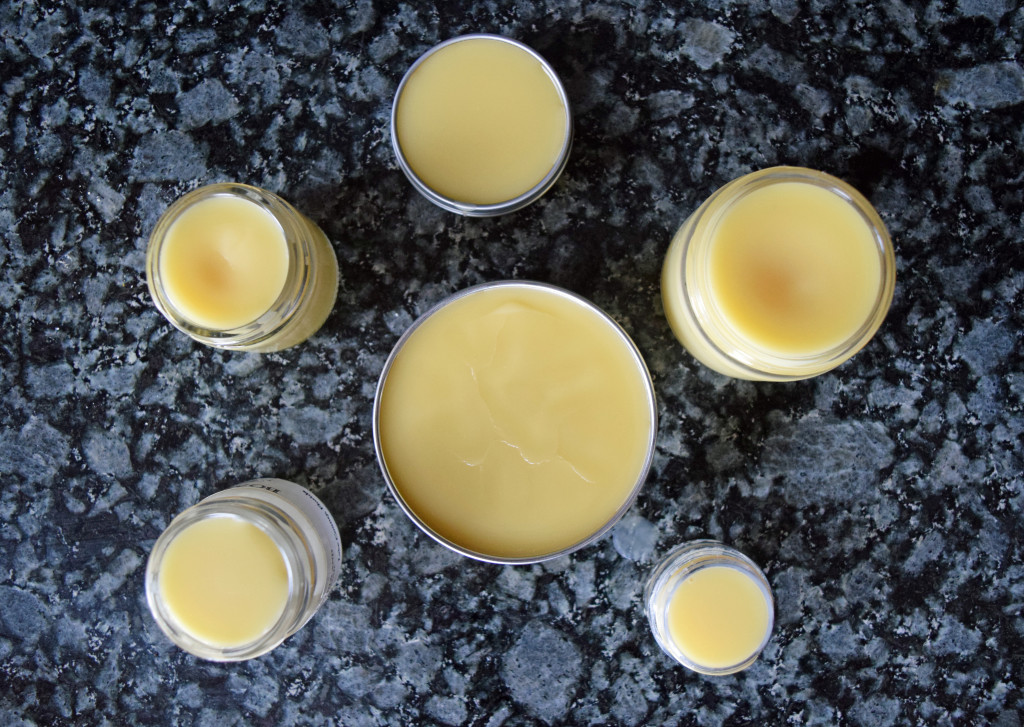
Just so you know, this balm is pretty solid to touch. You can’t poke your finger in it the way you can a cream. But that’s exactly what I love about this skin balm. It’s got sticking power! That said, once the balm comes in contact with the heat of your skin, it totally softens and is easy to rub in.

This recipe will make plenty of skin balm for you to keep for yourself and some for gifts too! The small jars are perfect for your purse or for travel. I’ve been keeping one at my desk and another at my bedside table so they are always there for me. Not only is this balm fantastic for hands, it’s a perfect post-shave lotion and a fix for rough elbows or any dry patches of skin, including eczema.
Homemade Lavender Calendula Skin Balm

Homemade lavender calendula skin balm using only 5 natural ingredients.
Materials
- 1/2 cup beeswax pellets
- 1/2 cup cocoa butter discs
- 1/4 cup calendula oil
- 1/4 cup sweet almond oil
- 30 drops lavender essential oil
Tools
- Glass or metal jars with lids. I love to repurpose jars from other skin care products.
Instructions
- Bring water in bottom of a double boiler to a boil and then reduce to a simmer.
- Place all ingredients except essential oil in the top pan of the double boiler.
- Allow beeswax pellets and cocoa butter discs to melt completely.
- Remove from heat and add lavender essential oil. Swirl to mix.
- Pour liquid into containers and allow to cool before placing lid on top.
How’s your skin handling the change of seasons?
P.S. If you are looking for a more “melty” body cream, my Whipped Shea Body Butter may do the trick! Also, check out my DIY Beauty section for more ideas!



Hi there! First off, I have to say your recipes sounds amazing and I can’t wait to try them!
I was also wondering if I could get your opinion about some balms that I’ve been experimenting on. I normally use a mix of beeswax and cold pressed coconut oil as the base and often find spots or circular imprints similar to that of a honeycomb on the surface of my balms when they harden.
Do you have any idea what could be the cause or
What I could do to fix it?
Hmmm…I don’t know exactly why that happens. It might be something that occurs when the ingredients cool.
I definitely need to make this.